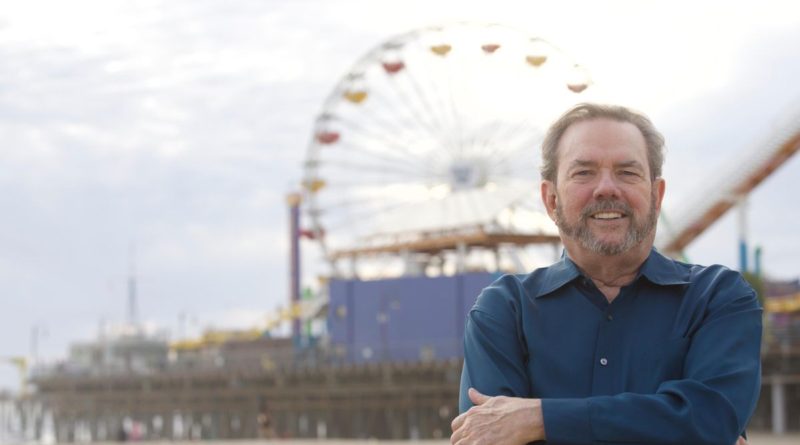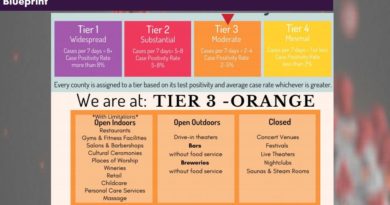Legendary Songwriter Jimmy Webb On Streaming Concerts Amidst COVID-19, Monterey Pop And The 52 Years Since ‘Wichita Lineman’

Songwriter Jimmy Webb, 73, talks about connecting with fans via living room performance videos … [+]
Photo by Henry Diltz
As concert tours were canceled or postponed indefinitely following the onset of the coronavirus pandemic, artists have been forced to find new ways to connect with fans and maintain their audience.
Prior to the onset of COVID-19, legendary songwriter Jimmy Webb was already extremely active via social media, interacting with fans in the comment section of Facebook posts about songs highlighting his legacy within the pop and rock canon.
But today, Webb has taken all of that a step further, spotlighting excerpts from his 2017 autobiography The Cake and The Rain, curating Spotify playlists and experimenting with performances from his living room piano for streaming via Facebook Live.
“It’s a strange time. We seem to be getting by. I’m seeing a lot more of my immediate family because of Zoom. Zoom is my new weapon of choice. It kind of helps you keep things together,” said Webb over the phone recently of life during quarantine. “Maybe, in a way, family contact is up a few points. I think that we’ve done a lot better this year just because of the impetus of this epidemic.”
Webb is one of America’s great living songwriters, checking in at #44 on Rolling Stone’s list of the 100 Greatest Songwriters of All Time. He’s best known for tracks like “MacArthur Park” (a hit for actor and singer Richard Harris in 1968) and collaborations with artists like Art Garfunkel, Linda Ronstadt and the 5th Dimension.
With two living room concerts under his belt totaling nearly 45,000 views, Webb, 73, sees vast potential for where he heads next with the streaming video performances.
“I’ve done a couple of tests where I sat down one afternoon with no promotion and no notice on Facebook – no advertisement of any kind – and just sat down and started talking and playing the piano. And within like ten minutes, we had 3,000 people. I just went, ‘Wow! This thing is powerful!’” said Webb of the Facebook Live broadcasts. “Now I’m going to bring in the pros – which is my wife. She is a full-time television producer at PBS. She’s going to organize a regular show for me – at least over the short haul – and I’m going to try and get some guests. I’m going to play a lot more music and maybe try to make it forty-five minutes. I’m excited about it. I won’t be shaking any hands afterwards!”

Jimmy Webb and Glen Campbell during 44th Annual ASCAP Country Music Awards – Show at Ryman Theater … [+]
WireImage
Webb’s second Facebook Live video looked back upon his most famous partnership on what would’ve been country singer and songwriter Glen Campbell’s 84th birthday. During it, Webb performed “Wichita Lineman,” a song he penned for Campbell which provided unique depth to the country music genre upon its release in 1968.
Today, the track is widely looked upon as one of the greatest pop compositions ever written and was recently added to the Library of Congress National Recording Registry.
In the fifty-two years since its release, following countless covers by musicians ranging anywhere from crooners like Tom Jones to R&B artists like Smokey Robinson and Kool & The Gang, even rockers R.E.M. and Guns N’ Roses, the enduring legacy of the song has forced Webb to consider it anew.
“The inspiration doesn’t change. I wrote it for a young woman and so it’s still about her. But it has been such a long legged horse. It still gets recorded. It still makes these best ever lists. It’s like initials carved in a tree: Jimmy & Glen. Its individual importance has really outstripped the rest of the catalog by leaps and bounds. So I start paying more and more attention to it – like, ‘What did I do here?’” said Webb.
“Because I did it in a hurry. I did it one afternoon. And when I sent it over to Glen, I sent a note with it saying, ‘I don’t really think this song is finished yet. But let me know. If you like it, I’ll do more work on it.’ A couple of weeks went by and I didn’t hear from those guys and I thought, ‘Well, they didn’t like it.’ And that’s just the way it goes. You get a lot of that in my business,” Webb said. “So, I wandered into [producer/engineer] Armin Steiner’s [studio] one afternoon and Glen was finishing up. And I said, ‘Listen, no hard feelings about that ‘Wichita Lineman’ thing…’ And he said, ‘We cut that!’ And I said, ‘You did? I told you that that song was only partly done and that I would work on it some more…’ And he said, ‘Well, it doesn’t matter. Because it’s finished now!’” recalled the songwriter.
“It wasn’t really one of the songs that I thought that I’d put a lot of weight behind. It had been about three or four hours one afternoon messing around and working this idea of the guy who works up on the electric wires, inspired by people I saw when I was growing up in the panhandle of Oklahoma, high up on these telephone poles. And maybe there was nothing else there. But, really, there was – because there was intimate inner dialogue going on in this character and he knew he was just a simple guy,” said Webb. “Billy Joel said about it one time that he was an ordinary man thinking extraordinary thoughts. And I broke down and cried – and I never cry. But he got me with that. Because that was pretty much on the nose.”
Campbell recorded “Wichita Lineman” backed by legendary session group The Wrecking Crew, with whom he performed as a member himself in the early 60s on cuts by artists like Elvis Presley, The Beach Boys, Lou Rawls, Wayne Newton, The Monkees, Frank Sinatra and countless others prior to achieving breakout success on his own as a solo artist.
Webb ran down Campbell’s incredible session contributions during his living room performance of the song . But the songwriter has his own connection with the group as well, having performed with The Wrecking Crew as a member of Johnny Rivers’ band during a pivotal counterculture moment on stage at the Monterey Pop Festival.
“There was a real innocence about it. I think one of the famous photographs from Monterey was of the girls in their long dresses putting little flowers in the barrels of the National Guard shotguns. There was a peace. It started very tentatively. It was like, ‘Are we really sure what we’re doing here?’ And there came this enormous surge of confidence as the bands began to play one by one,” said Webb of the June 1967 festival. “To be on stage looking out was awesome. Because I had never seen that many people. It couldn’t have been over 25,000 people. But, to me, it looked like a million. I got down and walked through the crowd and Johnny Rivers was insisting that I go out and get a historical relic – because he grasped the importance of it immediately. I ended up going out and buying a yak vest. And the yak vest hadn’t cured out exactly right,” said the songwriter, looking back.
“Suddenly there was just, almost spontaneously, this sense of community. And there was a sense of movement of, ‘Yeah, we’re gonna do this all of the time. We’re gonna do this every year!’ There was such excitement and such love for what was going on. And it turned out that that really was the last one. Because after that, things began to go wrong,” said Webb, referencing tragic forthcoming events like the Manson Family Tate-LaBianca murders and Altamont Free Concert which would follow just two years later. “But that day, it was some beautiful people who came down from San Francisco and a lot of loving people who came up from L.A. who were really against the war and peacefully protested, played music and nobody got hurt. I think it was the start of something. It was the beginning of kind of the ‘Summer of Love’ as they say. But I just remember that everyone had a shine – a sort of inner light beaming out of their face. That’s what I remember.”

NEW YORK, NY – MAY 03: Singers Isaac Hanson, Taylor Hanson, Johnny Rivers, Art Garfunkel, Catherine … [+]
Getty Images
Over the course of the last twenty years, following the rise of the internet as the music industry’s primary method of distribution, it’s become more difficult than ever for artists to monetize recorded music – songwriters in particular.
As a result, most make their money touring, where in addition to selling concert tickets, they can interact directly with fans and sell merchandise, boosting their visibility, which can in turn lead to a greater number of online song streams.
With the ability to tour off the table for the foreseeable future amidst COVID-19, Webb is clear on the impact that lost revenue stream is having on musicians.
“It’s been very, very hard to get the message across that people do make a living – or try to make a living – writing songs. That’s news to this generation. They don’t know about that. But the end result is that most of the acts are on the road. That’s the way they make money. I tour at least fifty dates a year. This year I was supposed to do seventy. And then, all of the sudden, something like COVID comes along and you’re not doing any tours – you’re not touring anywhere. The whole world is shut down. So we effectively belong to that portion of the population who are unemployed as a result of the pandemic,” Webb explained.
“It all started I guess about ten or twelve years ago – the fan base really started to build. My habit was to go down front after the show and really meet everybody and – get this – shake everybody’s hand! I’d sign their albums and give hugs – I did the whole thing. I marvel at the level of contact we had. But the fans absolutely loved it. They could ask for photos. So it started out to be very irritating and it actually became a labor of love. Now I miss it more than anything in the world. It’s killing me that I can’t do it,” said the songwriter of his touring routine.
“That kind of loop, that kind of feedback, is immensely satisfying. It makes one feel like we’re actually doing something with this songwriting, you know? It really does go out there and it affects other people’s lives – which is just a kind of magic. I’m not sure I understand it,” Webb said. “You realize that your music is intertwined with some of the happiest and some of the saddest moments in people’s lives. It’s a humbling experience.”




